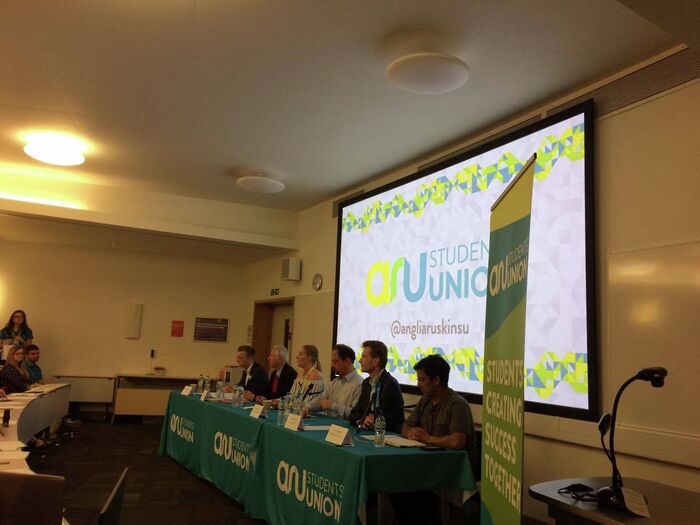
Poll shows huge lead for Labour among Cambridge students
A Varsity poll of nearly 1,400 University members shows overwhelming support for Labour ahead of the General Election next week

A Varsity poll of University of Cambridge members’ voting intentions has found unprecedented support for Labour among students ahead of the General Election next Thursday.
The survey, which received 1,373 replies from authenticated University accounts, found that 61.5% of those respondents who plan to cast their ballot in Cambridge intend to vote for Labour’s Daniel Zeichner on 8th June.
The result is strikingly positive for Labour, in a seat which Zeichner won by just 599 votes in 2015, where the student vote can make a significant difference. 26.6% of respondents said that they would vote for the Cambridge Liberal Democrats, whose candidate is Julian Huppert.
Labour’s result is a significant increase on the 33% of respondents to Varsity’s 2015 poll who said they would vote for the party.
This appears to be in part due to the apparent collapse of the Green vote: at the last election, 22% said they would vote Green, a number which fell to just 2% in the new results. The vast majority of respondents who claimed to have voted Green in 2015 said they intend to vote for Labour next week. This shift may be due to Labour’s more left-aligned manifesto, which includes a pledge to abolish tuition fees.
Zeichner welcomed the results, saying “Labour has a radical offer to students and young people and is offering real hope”.
He added “if Labour forms the next government future students will get free education, and for current students Labour will not raise repayment thresholds and will lower the interest rates”.
“I’m a red/green politician, and I’m sympathetic to the policies put forward by the Green Party,” Zeichner said, “But here in Cambridge there is a danger of Conservatives voting tactically to put the Lib Dems, their former coalition partners, back into power. So I appeal to Green voters to use their vote to stop the Tories and the Lib Dems by voting Labour.”
Huppert acknowledged that the constituency is looking set to be close again, but emphasised Thursday’s vote as an opportunity to reverse the result of last year’s referendum on EU membership. Cambridge was home to one of the strongest Remain votes in the country.

“This is going to be a tight race in Cambridge, between me and Labour – every vote will count,” Huppert said. “I think the most important issue is Brexit – with both the Tories and Labour pushing for Brexit, which is going to cause such harm to Cambridge, and especially to students, this may be the last chance to take a stance against it. If you want to show that you oppose Brexit, you have to vote for an anti-Brexit party.”
Huppert told Varsity: “I hope students will vote for me as the principled and consistent anti-fees candidate, not the Labour party, who introduced them, tripled them, and planned still further increases.
The Conservative vote among students is lower than it was in Varsity’s 2015 survey, at nearly 10% of all respondents, with around a third of those planning to vote at home instead of in Cambridge. This reflects a broader trend for tactical voting – one in five respondents said they intended to vote at home, though few will be voting in swing seats tighter than Cambridge. Only two students said that they plan to vote for the independent candidate, Keith Garrett of Rebooting Democracy.
The UKIP vote among University members, always small, has evaporated almost entirely. UKIP is not running a candidate in Cambridge in this election, amid wider difficulties afflicting the party.
A small but notable gender divide was apparent among respondents, with Labour dominating the female and non-binary vote. The majority of male respondents also supported Labour, but support for the Lib Dems and Conservatives was comparatively higher. The poll received a higher number of responses from male University members, with roughly 50% more male respondents than female or non-binary.
The majority of respondents, around 90%, were undergraduates. Labour held majorities in all of the non-mature colleges, with their highest results occurring at the two women’s colleges: Murray Edwards and Newnham. Corpus Christi and St John’s had the highest Lib Dem support, at over a third each. For the second General Election in a row, Varsity found the highest levels of support for the Conservative Party at Downing, where 17% said they would vote Tory. Downing also had the highest percentage of Green voters
 News / Eight Cambridge researchers awarded €17m in ERC research grants27 December 2025
News / Eight Cambridge researchers awarded €17m in ERC research grants27 December 2025 News / News in Brief: carols, card games, and canine calamities28 December 2025
News / News in Brief: carols, card games, and canine calamities28 December 2025 News / Caius mourns its tree-mendous loss23 December 2025
News / Caius mourns its tree-mendous loss23 December 2025 News / Clare Hall spent over £500k opposing busway 24 December 2025
News / Clare Hall spent over £500k opposing busway 24 December 2025 Interviews / Meet Juan Michel, Cambridge’s multilingual musician29 December 2025
Interviews / Meet Juan Michel, Cambridge’s multilingual musician29 December 2025










